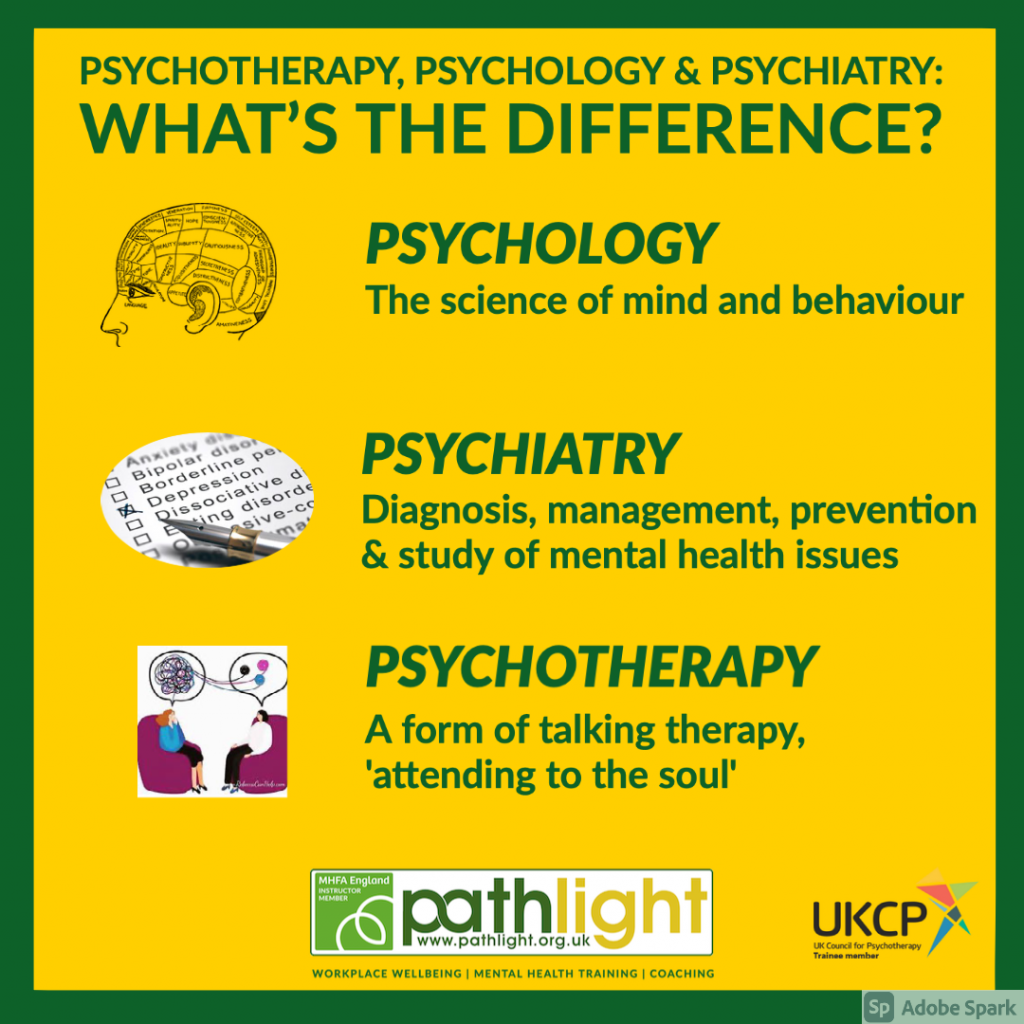What is psychotherapy?
How is it different to psychology and psychiatry?
In this brief blog, Paul Wolstenholme, Director of Pathlight Ltd and psychotherapist in training, offers a response to this common question… and shares why he loves psychotherapy.
“So you’re a psychotherapist…can you read minds?”

In a humble attempt to clear up some confusion, I offer this summary of my understanding of psychotherapy, psychology and psychiatry…
PSYCHOLOGY
Psychology is the science of of mind and behaviour.
- Psychologists study people: how they think, behave and interact.
- Psychology is concerned with all aspects of behaviour and the thoughts, feelings and motivation that drive those behaviours.
- Psychology is primarily concerned with the normal functioning and development of the mind.
- Psychologists can specialise in areas including mental health or educational, occupational, clinical and forensic psychology.
Psychiatry
- Psychiatrists focus on the study, diagnosis, management and prevention and mental health disorders.
- Psychiatrists are medical doctors who have qualified in psychiatry.
- Psychiatrists can treat mental health issues related to mood, behaviour, cognition, and perception.
Psychotherapy
Psychotherapists facilitate a safe space to develop clients’ understanding of themselves and how they relate to the world.
The therapeutic process can include:
- Supporting clients to explore and overcome issues with self-image, relationships, unhelpful behaviour patterns, stress and difficult emotions
- Processing past traumas and healing emotional wounds
- Bringing the client’s unconscious material into consciousness. (by exploring the client-therapist relationship or via creative work such as dreamwork and creative imagination)
- Guiding clients back to their true soul nature
- Empowering clients to develop and balance those qualities they are not manifesting, in order to fulfil their potential.
- Psychotherapy is generally a longer-term process than counselling, with clients often attending for many months or years. This enables an open, trusting relationship (‘therapeutic alliance’) to develop and the space to explore experiences in great depth.
- There are many different approaches in psychotherapy, including psychodynamic, humanistic and integrative modalities.
Transpersonal Integrated Psychotherapy
- Transpersonal means ‘beyond the person’, encompassing the spiritual aspects of life and ancient wisdom alongside modern psychological science.
- Integrative means that all of the therapeutic approaches have value and can be employed at appropriate times to support clients on their journey.
Further information and support…
If you would like to find out more about psychotherapy, either as a client or a career choice, please visit:
https://www.psychotherapy.org.uk
- Click here to sign up to Pathlight’s e-newsletter for occasional updates on our services, resources to support mental health & wellbeing and more.
- Visit our website or email us for details of our services:
- Mental Health First Aid training
- Workplace wellbeing programmes
- Coaching for individuals, families and teams
- Webinars for individuals and organisations
For more information on this blog post, interviews or services provided by Pathlight Ltd, please email Paul: info@pathlight.org.uk

